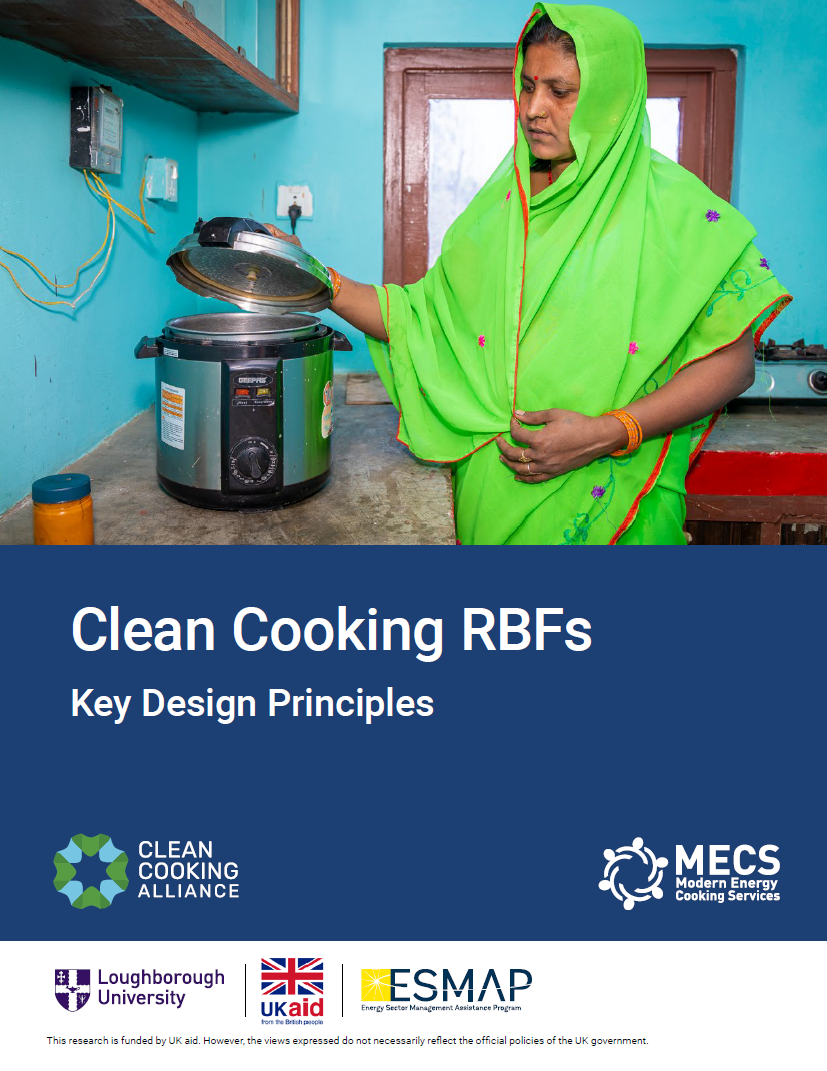
- Date
- 13th October 2022
- Categories
- General
Launched on 12 October 2022 at the Clean Cooking Forum 2022, a joint report ‘Clean Cooking RBFs: Key Design Principles‘ by the Clean Cooking Alliance (CCA) and Modern Energy Cooking Services (MECS) presents 12 clean cooking Results-Based Financing (RBF) case studies to help RBF practitioners to gain a more detailed understanding of the landscape of RBFs in the clean cooking sector.
This joint report reflects the strategic cooperation between CCA and MECS under the Results-Based Finance Accelerator (RBFA) initiative. It also responds to one of the actions agreed in an ad hoc coordination meeting of key funders and managers of publicly funded results-based finance programs promoting clean cooking, which was organized on the sidelines of the Sustainable Energy for All
forum in Kigali, Rwanda, on May 19, 2022. Among the agreed actions are making an inventory of clean cooking interventions including details on RBFs and for CCA to help the clean cooking sector coordinate around early RBF learnings.
The report is an output of the Results-Based Finance Accelerator, a shared industry platform to unlock results-based financing (RBF) in the clean cooking sector. The RBFA is part of CCA’s agenda Innovative Finance agenda, which seeks to remove systemic barriers to the flows of public funding and private finance needed to accelerate the growth in markets for fuels and tools that support clean cooking.
The report also presents key research findings of the MECS program obtained between February 2021 and August 2022. It builds on key objectives of the MECS program, which are piloting and promoting impact funding including carbon credits as well as the support of RBF programming to promote modern energy cooking market scaling, especially for Tier 5 technologies.
By compiling a collection of clean cooking RBF case studies, the intention of this report is to:
- Make it easier for RBF practitioners and other stakeholders to get a more detailed understanding of the landscape of RBFs in the clean cooking sector.
- Help RBF developers to be made aware of early lessons that have emerged from RBF programs in the clean cooking sector so far, assisting with the design of future clean cooking RBFs.
- Serve as a basis for a broader stakeholder discussion on how to improve the sustainable impact of future RBFs.